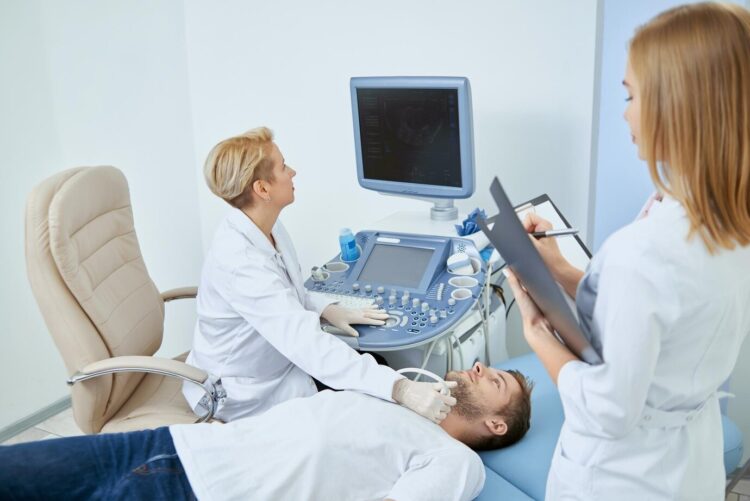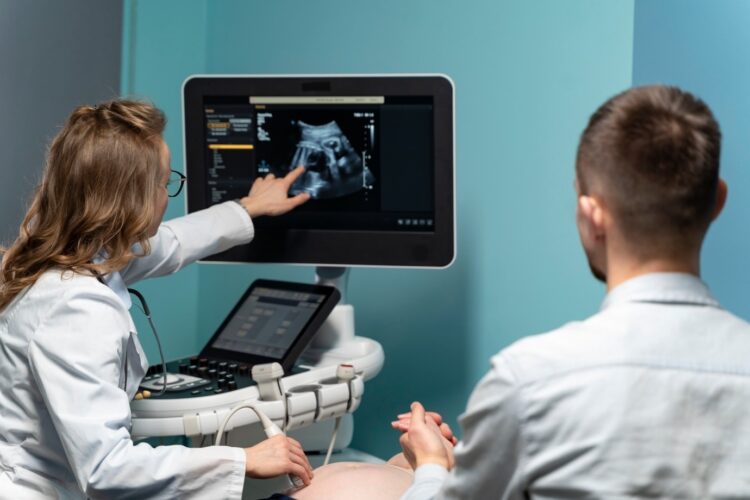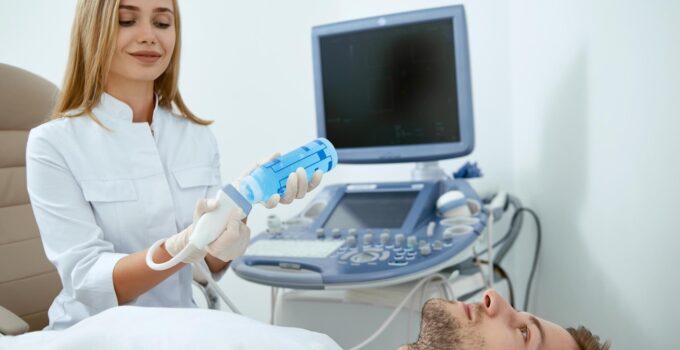As a diagnostic medical sonographer, no two days are ever the same. You can play vital roles in patients’ healthcare journeys by capturing ultrasound images that help doctors gain insights.
From expectant mothers to athletes with injuries, your diagnostic exams provide answers and peace of mind. Behind the scenes, it’s fascinating how soundwaves create a window into the human body.
If the mix of technology, healthcare, and hands-on work appeals to you, an associate degree in diagnostic medical sonography can launch a rewarding career. This article will explore this training and the top-rated programs for beginning this career path.
Page Contents
Diagnostic Medical Sonography Degree Training Options

Source: freepik.com
Whether your priority is starting a career quickly or learning close to home, a Diagnostic Medical Sonography associate degree is a practical choice. Most programs take under two years to finish if you attend full-time.
During this time, you’ll gain extensive training in core topics, including ultrasound principles, equipment operation, anatomy, and more. Classroom time teaches medical terminology, physics concepts, and other theoretical aspects.
Then, hands-on clinical experience puts learning into direct practice throughout the program. Rotations in medical facilities under expert supervision help develop real-world scanning skills. What’s more, many community colleges make their programs accessible through affordable tuition costs.
Focus on Hands-On Learning
Reputable colleges in New York offer the highly regarded Diagnostic Medical Sonography associate degree. Students benefit from good colleges’ focus solely on healthcare education and their history of providing top-notch training.
Modern classroom spaces and simulation labs enable engaged learning. Additionally, clinical placements offer opportunities in various practice settings. Plus, with a campus conveniently located near you, an associate degree is attainable by studying close to home.
Good programs ground learners in ultrasound fundamentals while cultivating professional qualities like communication, critical thinking, and care for patient well-being. Graduates prepare to pass certification exams and assist physicians through diagnostic medical sonography.
Developing Strong Patient Care Skills

Source: freepik.com
When enrolled in a diagnostic medical sonography degree program, it is crucial to prioritize the patient’s comfort level. During clinical hours, students gain an understanding of protocols for specific exams and learn to explain each step carefully.
Building rapport helps reduce anxiety. Understanding how sonography benefits healthcare also inspires confidence. For example, ultrasound allows the identification of issues like gallstones without exposing patients to radiation.
Scans produce real-time images assisting with diverse conditions, from abnormalities to pregnancy. The ability to aid doctors through diagnostic work makes sonography intensely meaningful. Plus, as ultrasound steadily expands into new applications, career opportunities continue growing each year.
Career Growth Opportunities After an Associate Degree in Diagnostic Medical Sonography
Certification unlocks full career potential after completing a Diagnostic Medical Sonography associate degree. The American Registry for Diagnostic Medical Sonography and the American Registry of Radiologic Technologists offer general exams.
Although certification is not mandatory in all states, it demonstrates a dedication to standards and is becoming increasingly desirable to employers. Some may even require additional credentials for more specialized modalities like vascular sonography.
If gaining a rewarding role in healthcare appeals to you, sign up for an Associate Degree in Diagnostic Medical Sonography at a reputable institution today.





